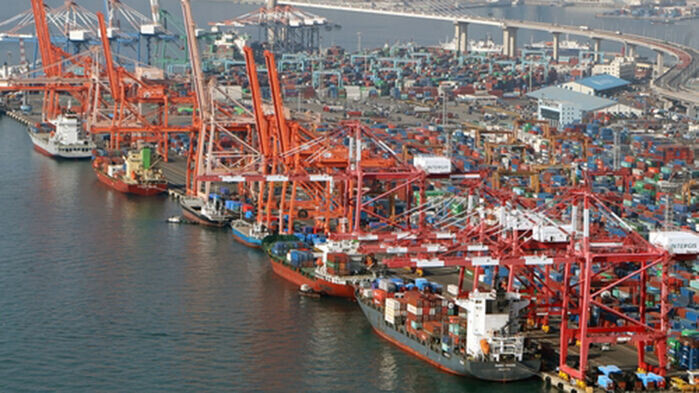
South Korean companies are increasingly anxious due to the unpredictable tariff policies of the Donald Trump administration. Particularly, companies heavily reliant on the U.S. market, such as Company A, which confirmed its export products are included in the list of auto parts subject to tariffs, and Company B, which is concerned about a decline in the export competitiveness of its transformers due to increased prices from tariffs, are facing a critical situation.
The Ministry of Trade, Industry and Energy (MOTIE) and the Korea Trade-Investment Promotion Agency (KOTRA) announced on April 22nd that the ‘Tariff Response 119’ consultation hotline, established by the government as part of its emergency export countermeasures, received a staggering 3,022 inquiries related to exports to the United States over the past two months (February 18th to April 18th).
This figure represents a more than fourfold increase compared to the 679 hardship consultations related to the Americas during the same period last year. In early April, when the U.S. announced reciprocal tariffs and waivers by country, the hotline was flooded with over 200 inquiries per day. This surge in inquiries reflects the heightened confusion among companies following the Trump administration's series of tariff pressures, including the imposition of high tariffs on imported steel and aluminum products since last March, and the announcement earlier this month of universal tariffs on imports from all countries, along with a 25% reciprocal tariff (with a 90-day grace period) for South Korea. The domestic industry is on high alert, especially with the 25% tariff on imported automobiles already in effect since April 3rd, and a 25% tariff on auto parts scheduled to take effect on May 3rd.
Analysis of the inquiries reveals that companies are primarily concerned about tariff rates (81%), rules of origin (8%), implementation timing (7%), and taxable prices (4%), representing 68% of the total inquiries related to tariffs themselves. In addition, there were also inquiries regarding government support programs and product certifications/standards (21%), entry into alternative markets (7%), and relocation of production bases (4%). This indicates that companies are struggling to ascertain the exact tariff rates applicable to their products due to the Trump administration's inconsistent tariff policies and are exploring various response strategies amidst the uncertainty.
In response, the government is focusing on listening to the grievances of companies and providing customized consulting through the ‘Tariff Response 119’. In particular, the ‘Online Tariff Inquiry System’, which allows for easy online verification of tariff rates, has been operational since March 25th, enhancing information accessibility. Furthermore, KOTRA is leveraging its local network in the United States to promptly grasp the latest tariff trends and swiftly provide relevant information to Korean companies.
However, experts warn that the strengthening trend of U.S. protectionism could be prolonged, advising both the government and businesses to not only prepare short-term countermeasures but also to seek fundamental ways to enhance competitiveness, such as diversifying export markets and strengthening technological capabilities. In particular, it is pointed out that reducing dependence on the Chinese and U.S. markets, exploring emerging markets, and developing high value-added products are crucial to building resilience against external shocks.
The unpredictable trade policies of the Trump administration are acting as a major factor amplifying uncertainty in the South Korean economy. It is imperative for the government and businesses to cooperate closely, proactively respond to the changing international trade environment, and continue efforts to secure sustainable growth engines for the Korean economy.
[Copyright (c) Global Economic Times. All Rights Reserved.]






























